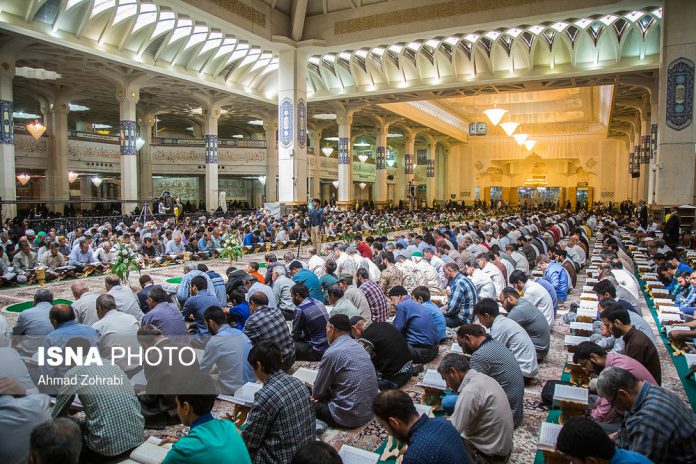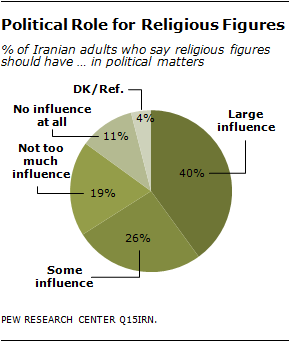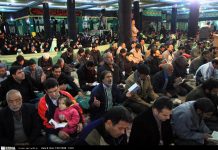‘Religion’ is a single word with lots of different meanings hence it becomes so difficult talking about it in intercultural spaces. But of course, as usual, I’m just going to write about the subject in Iran from a societal point of view and one can read more about Islam and Shia in related referent books.
In ancient times, the dominant religion in Iran was Zoroastrianism. In 651 AD, the Arab Muslims conquered the Persian empire and entered Islam as the main religion. Now, Iran is the main center for Shiite Islam in the world with more than 70 million population.
According to the CIA World Factbook, currently, around 90–95% of Iranians associate themselves with the Shia branch of Islam, the official state religion, and about 5–10% with the Sunni and Sufi branches of Islam. The remaining 0.6% associate themselves with non-Islamic religious minorities, including Bahá’ís, Mandeans, Yarsanis, Zoroastrians, Jews, and Christians. The latter three minority religions are officially recognized and protected, and have reserved seats in the Iran parliament.
In a May 2019 study, the Pew Research Center found out that 87% of Iranians pray on a daily basis, which was the second-highest percentage in Asia-Pacific
From wikipedia
In 1979, one of the greatest revolutions –regarding the proportion of the engaged population and its later effects- in the contemporary world happened in Iran. It was named the ‘Islamic Revolution’ which was then led to the ‘Islamic Republic’ type of governance officially elected by more than 98 percent of the existing population at that time. That may be one of the largest events rooted in the deep religious beliefs and emotions among the Iranians, nevertheless not the only significant instance. Reviewing the history of the country, one may find the track of religious beliefs in collective decisions and social behaviors each in all the determining turning point events.
Some main beliefs

As described by the Shiite intellectuals in Iran, the main resource of Islam are the Quran and the tradition of Prophet Mohammad and the twelve Imams after him (‘Tradition’ means the way that they lived and the words they spoke). 26 other prophets –including the Jesus, Moses, Abraham, and Noah as most prominent ones- were also called by their names in the Quran. All the prophets are known innocent and carrying the same message from God (the variations were caused just by their existing situation hence fulfilling the same mission). The Muslims believe in the only supreme God –Allah- and life after death –Ma’ad (read more here). Maybe more than half of all the verses in the Quran are explaining these two main facts.
قُولُوا آمَنَّا بِاللَّهِ وَمَا أُنْزِلَ إِلَيْنَا وَمَا أُنْزِلَ إِلَى إِبْرَاهِيمَ وَإِسْمَاعِيلَ وَإِسْحَاقَ وَيَعْقُوبَ وَالْأَسْبَاطِ وَمَا أُوتِيَ مُوسَى وَعِيسَى وَمَا أُوتِيَ النَّبِيُّونَ مِنْ رَبِّهِمْ لَا نُفَرِّقُ بَيْنَ أَحَدٍ مِنْهُمْ وَنَحْنُ لَهُ مُسْلِمُونَ
So [you believers], say, ‘We believe in God and in what was sent down to us and what was sent down to Abraham, Ishmael, Isaac, Jacob, and the Tribes, and what was given to Moses, Jesus, and all the prophets by their Lord. We make no distinction between any of them, and we devote ourselves to Him.’
The holy Quran, Al-Baqarah, 136
The Quran isn’t known as a normal book or just a historical text. Almost all the Muslims believe this book is exactly the words of God and the everlasting miracle of Prophet Mohammad –proving his legitimacy to be a messenger from God. Quran is known as a book with special characteristics: no humankind can create a similar text with the same quality by any humankind and also it can’t be changed and hasn’t been changed for more than one thousand years from what the Prophet taught the men.
وَإِنْ كُنْتُمْ فِي رَيْبٍ مِمَّا نَزَّلْنَا عَلَى عَبْدِنَا فَأْتُوا بِسُورَةٍ مِنْ مِثْلِهِ وَادْعُوا شُهَدَاءَكُمْ مِنْ دُونِ اللَّهِ إِنْ كُنْتُمْ صَادِقِينَ
If you have doubts about the revelation We have sent down to Our servant [Muhammad], then produce a single sura like it- enlist whatever supporters you have other than God- if you truly [think you can].
The holy Quran, Al-Baqarah, 23
Read the Quran with different translations here.
The religion is said to be consisting of three main pillars: the beliefs, the moralities, and the behaviors. The ‘beliefs’ must be attained by any individual by his/her own inference and reflection and can’t be imitated from any other person. The main philosophy of the religion is rooted in that humankind can’t reach to knowledge about everything and every relationship in the universe to feed all his present and future needs. So, he needs to follow what God is teaching him. Then, God speaks to the men in 2 ways: through the man’s own intellect and the messages inspired by God to the selected people. Therefore, many verses in the Quran are encouraging the men to think, learn, and try and at the same time see everything from the absolute power of God. Maybe that’s why there haven’t been serious contradictions between human wisdom and religion in the history of Iran. However, there have been various branches with different thoughts.
The Imams
Although the main teachings of God exist inside the Quran they aren’t known enough for redemption. The Prophet and the Imams have not only been the messengers of God but leaders of the society. Hence, their words and teachings –Hadith- are considered valuable and are written in hundreds of books by their followers from old times. However, these books aren’t considered with the same importance of the Quran, as they might have been changed over time or maybe counterfeited by the heart-sick people. There’s a knowledge branch called ‘Fiqh’ in Shia responsible for understanding the referent texts in Islam. To trace the historical narrators of Hadith, matching them with the Quran, understanding their hermeneutics, and putting all that together to extract the commands of God for the special and new situations. As the situation always changes, there’s a need to update them every now and then.
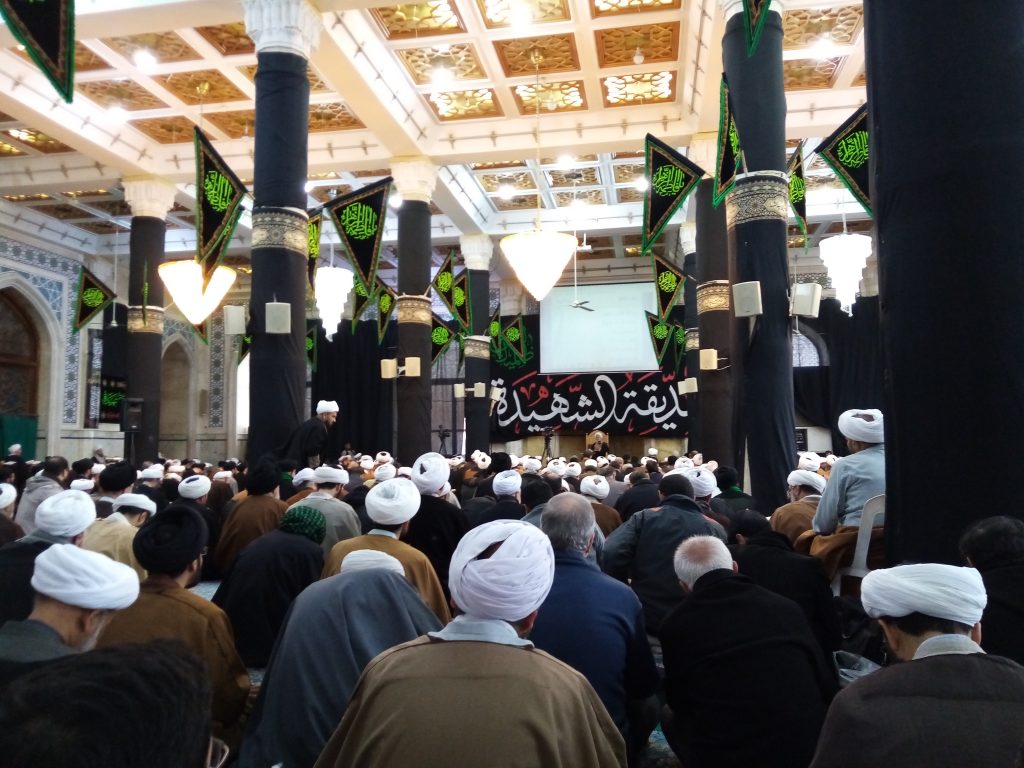
So, the presence of Imams, although they don’t receive revelation and miracle from God, is known to be necessary at all times. They have been both wise and moral people describing and directing society. The last Imam of the Shia –Imam Mahdi- is known to be alive but not visible to the people. It’s said that he will be visible again and spread his kingdom based on justice whenever the humankind society in the world becomes ready. That will happen with the help of Jesus when he also comes back from heaven to make that happen –similar to what the Christians call the Armageddon.
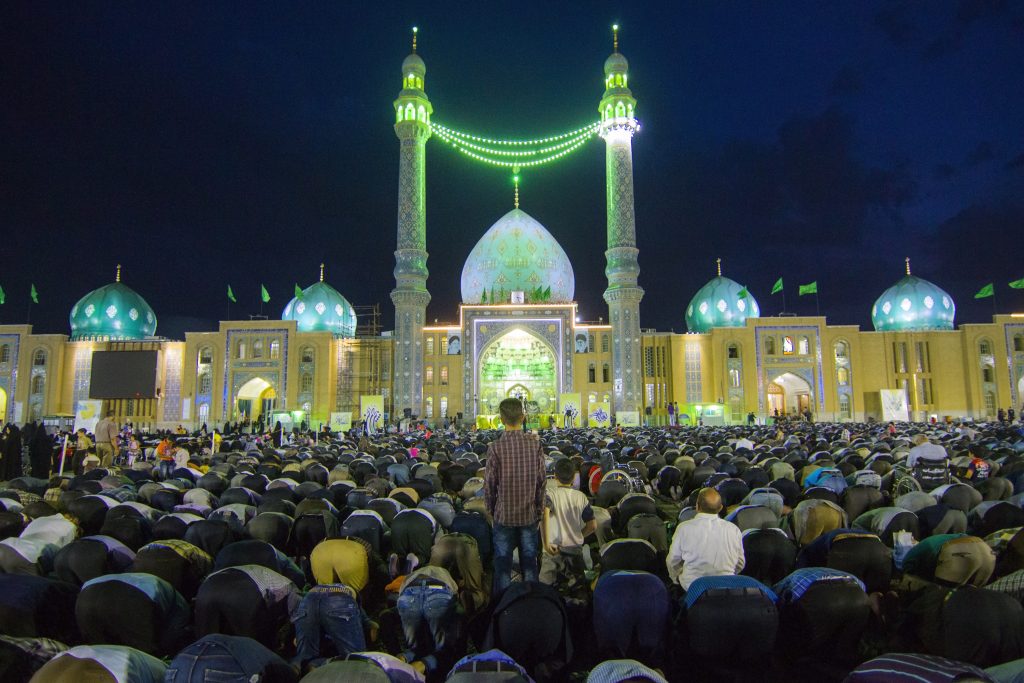
The politics and religion
In Shia Islam, religion has always been mixed with politics and that’s not particular to the future ending point of the history. Politics and governance are known as an important part of human life and a comprehensive plan for human life can’t be silent about that. Many troubles that the worldwide society is tolerating these days are caused by the governors who struggle for power by all means. The personal or national benefits are put at top of the targets list even if bypassing all the human values.
On the other hand, teachings from the prophet Mohammad and the Imams point to many cases that they have entered the politics by criticizing their contemporary rulers or constituting new governments to reach such values as of justice –that can’t be reached totally except if adopting political authorities. That’s not even specialized in the after-Islam era. The narratives of the past prophets –such as Solomon, Abraham, Moses, and Jesus- in the Quran are completely mixed with politics.
Read more about Islam in https://www.al-islam.org/
Also, you can introduce yourself by reading the book Islamic Belief System (here if you prefer watching!).



